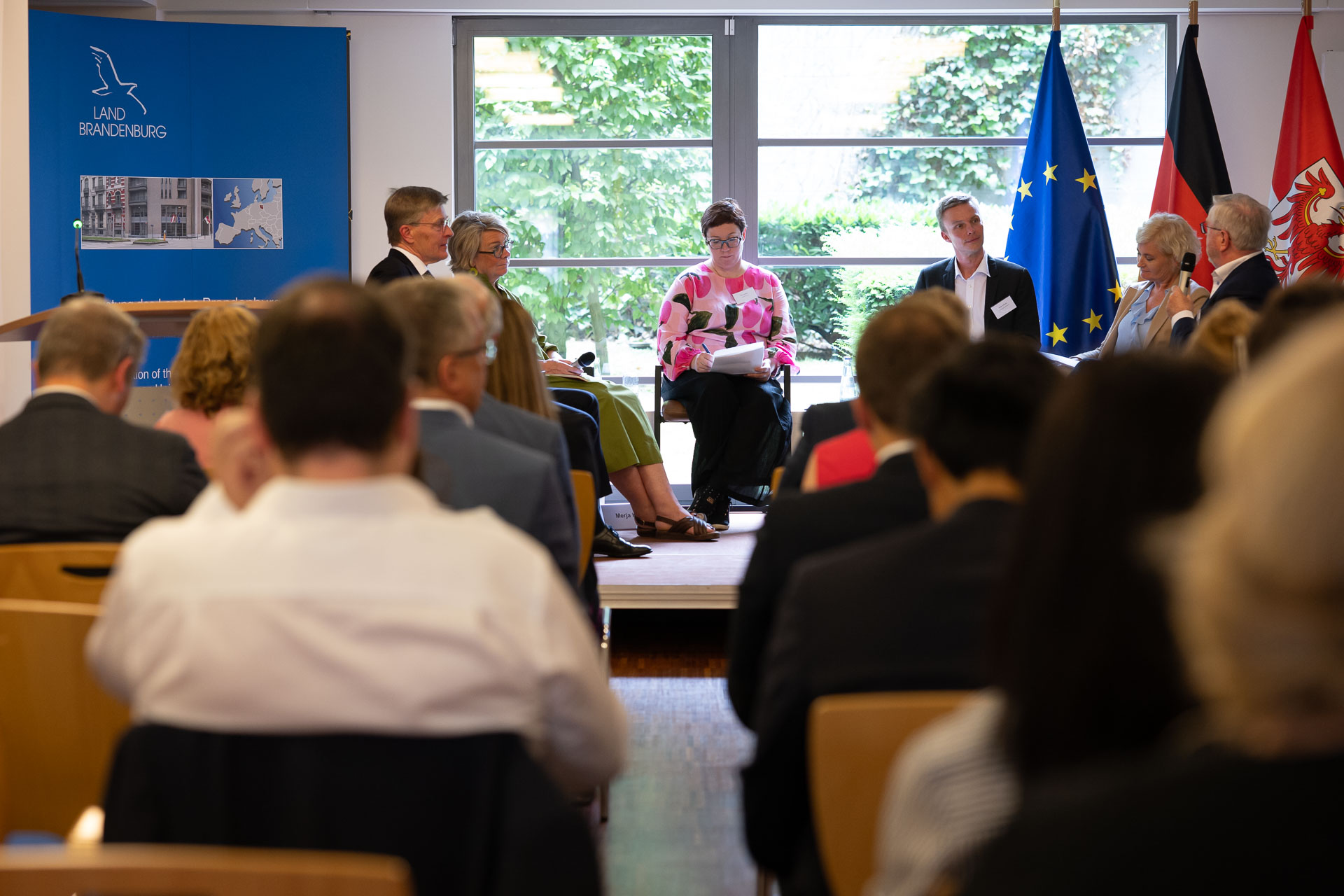During a high-level policy exchange on 25 June 2025, we explored how to ensure financial stability for a resilient transport system in a Europe that is facing multiple challenges.

The background for the policy exchange was the joint declaration “Investing in Resilience: Financing for a robust and sustainable European transport network” that the General Assembly of the Scandria Alliance had unanimously adopted during its internal meeting on the same day. In this declaration, Scandria Alliance members call for a strong, centrally managed European Transport Network as a prerequisite for competitiveness, security and resilient regional development and as an answer to geopolitical and climate change related challenges.
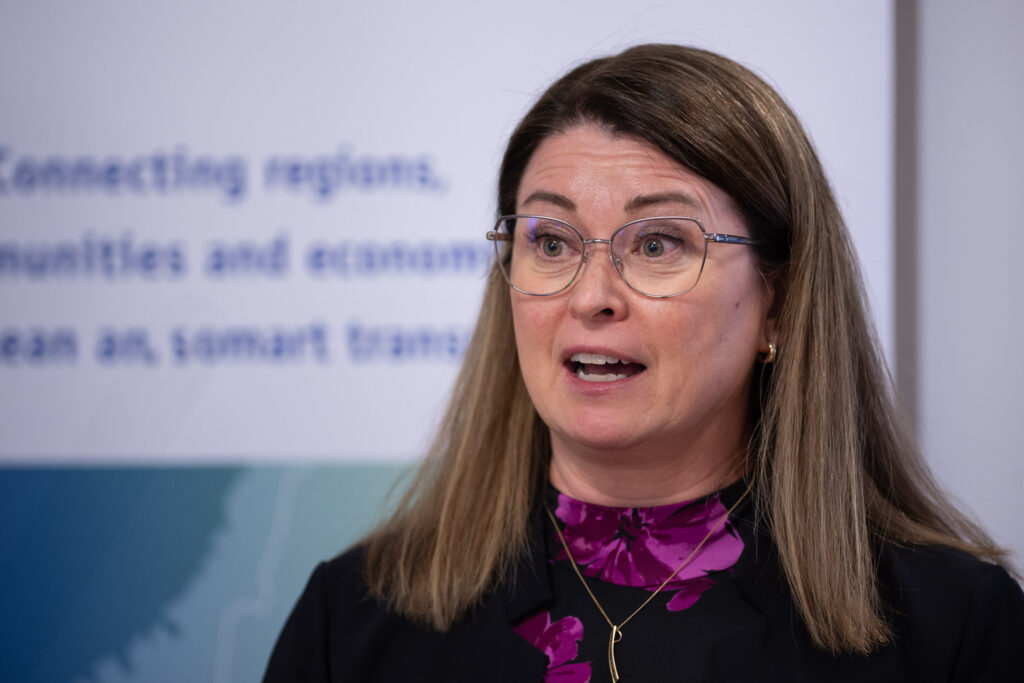
Åsa Ågren Wikström, chair of the Scandria Alliance’s General Assembly, presented this declaration in her welcome remarks and stressed the need for a strong European transport policy that is coordinated by the European Commission and takes into account the needs of businesses and people in European regions.
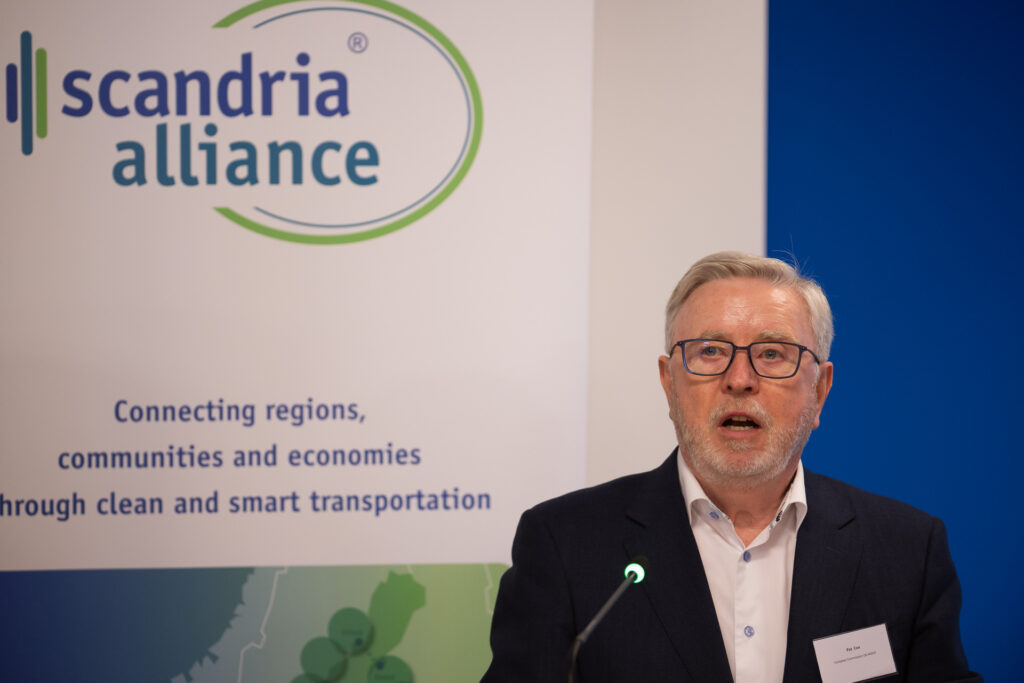
In his opening remarks, Pat Cox, European Coordinator of the Scandinavian-Mediterranean (ScanMed) European Transport Corridor, emphasized that involving regions in European transport policy is crucial for ensuring the connectivity of all regions – including the peripheral and border regions. According to Pat Cox, the legacy of TEN-T policy is that these regions and their cross-border connectivity have successfully been brought on the map. Cross-border governance mechanisms are key to find solutions for the often complex technical challenges associated with differences between the singular national transport systems.
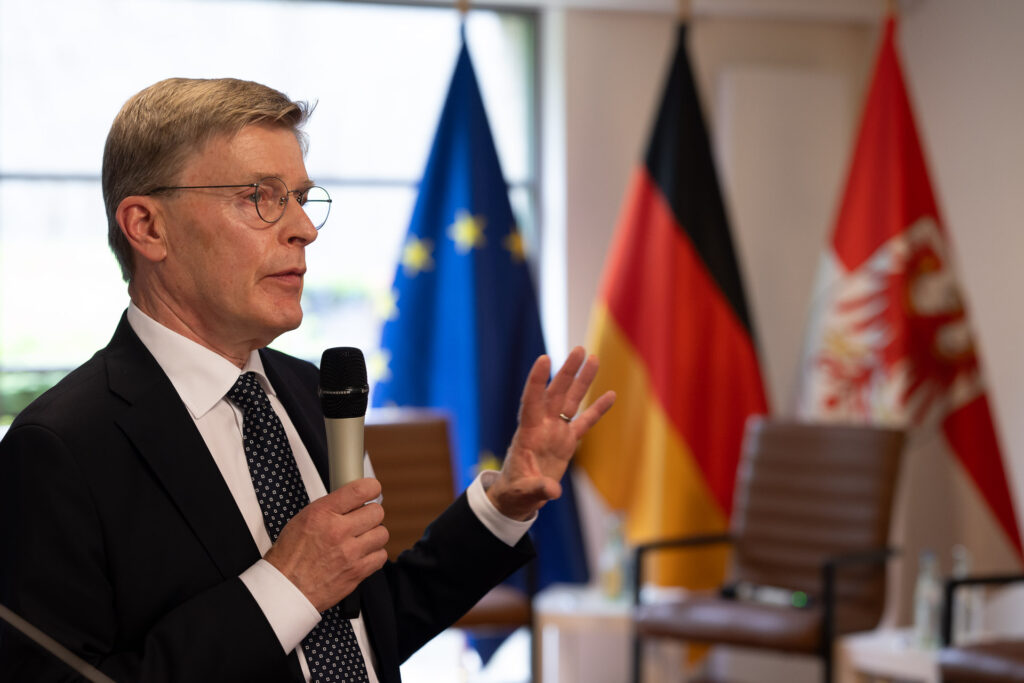
In his key note, Kim Wikström, professor in industrial management at Åbo Akademi University, underlined that there is no one-fits-all-solution for financing infrastructure investments. Involving private investors needs to be carefully planned in every case. Beyond financial resources, comptences and a fair share of risks is key to design public private partnerships. The traditional cost-benefit-analysis rather prevents a fair share of risks, not taking into account wider economic benefits.

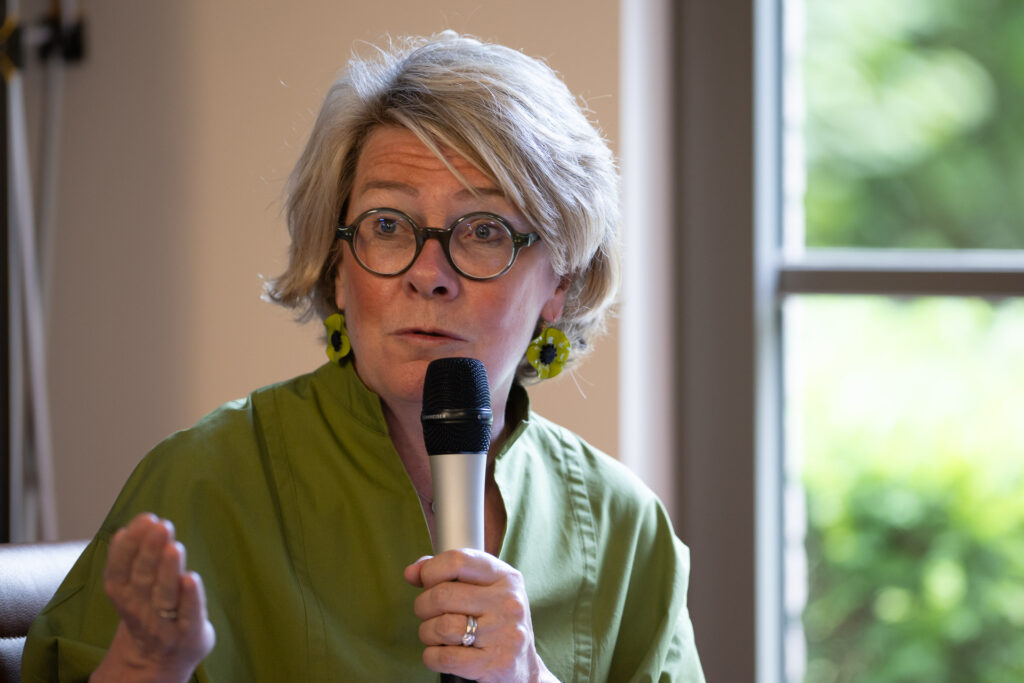
Isabelle Ryckbost, Secretary General of the European Sea Ports Organisation (ESPO), welcomed the Scandria Alliance’s declaration, which aligns very well to an earlier open letter by ESPO and 45+ other transport organisations calling for a strong Connecting Europe Facility (CEF) in the next long-term EU budget. Ports must make huge investments to fulfil requirements of ambitious European regulations, but also play a pivotal role for decarbonising European economies and energy systems. Isabelle pointed towards the need for reliable and durable policy support. As the framework conditions for ports differ largely from those in other parts of the transport network, larger flexibility is needed when implementing European regulations, for example when it comes to onshore power supply.
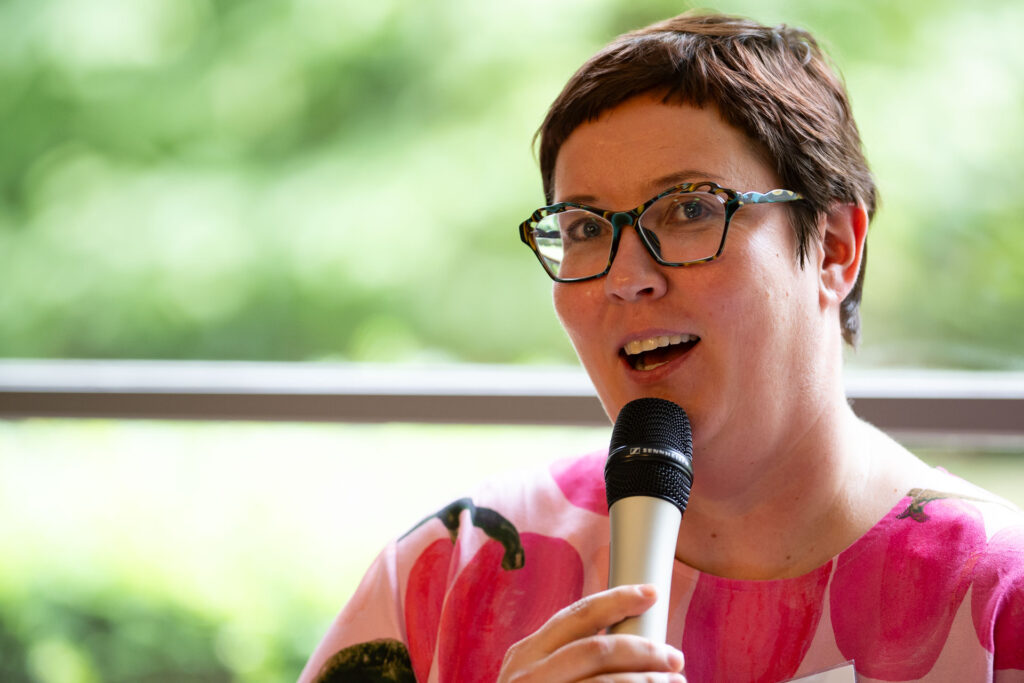
Member of European Parliament Merja Kyllönen (The Left, Finland) brought in the perspective of the Committee on Transport and Tourism (TRAN). She requested a common European vision to be able to compete with other regions in the world. Shaping such a vision requires to overcome national egoisms. Transport is the backbone for European economy and should be planned according to real needs. In the discussion on dual use, Merja called for an integrated thinking and for sharing already existing capacities better: why don’t we use transport infrastructure for military purposes close to where the threats are arising instead of giving everyone an equal share of the budget?
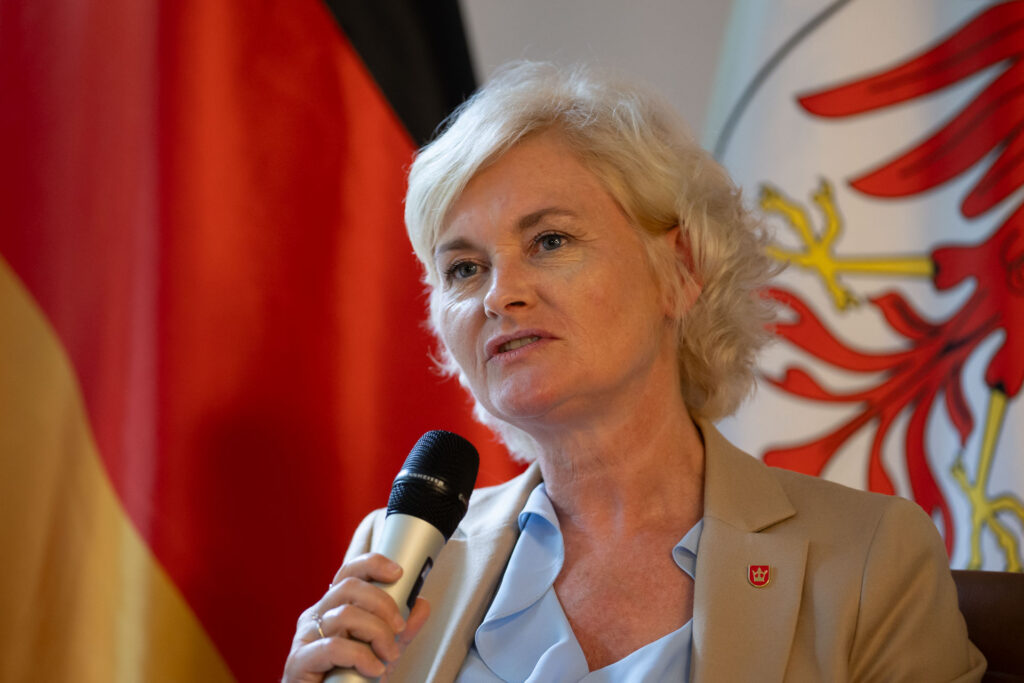
Anne Strømøy, county mayor of Vestfold county and political representative of the Eastern Norway County Network in the Scandria Alliance, pointed to the special situation of Norway, not being an EU member. According to Anne, infrastructure development cannot stop at borders if we want to reach our climate targets and if we want to strengthen our regions’ competitiveness. Dialogue about financing instruments is beneficial. Good solutions are available, like the urban growth agreements met in Norway. However, a fair share of costs is sensitive and the public institutions need to to provide the financial fundament to avoid a shift of costs to the public.
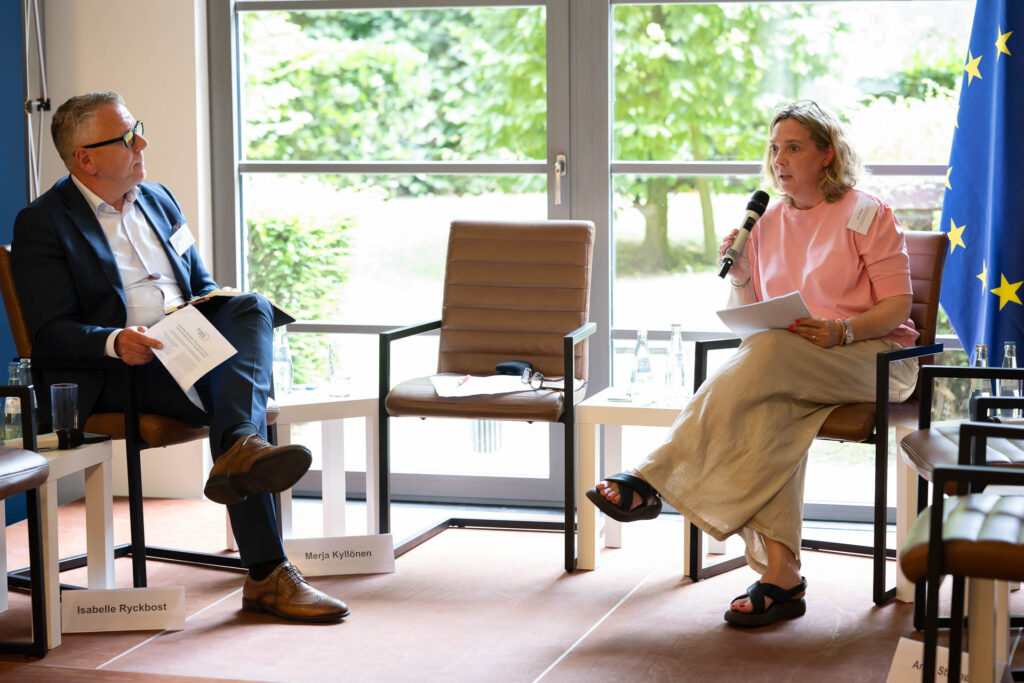
Jutta Bieringer, State Secretary for Federal Affairs and Delegate of Mecklenburg-Vorpommern to the Federation and Jyri Arponen, Regional Mayor of Southwest Finland, concluded that TEN-T is at a decisive crossroads and regions need to take the opportunity to advocate for a robust European transport network. As the European Coordinator Pat Cox put it earlier, regions constitute the “subnational hardcore” and must collaborate with the European Union – the supra-national level – to overcome national egoisms. Jyri Arponen considers it good news that that the CEF is likely to be continued with cross-border connectivity as one focus. However, regions have to stand together and to continue fighting for a truly European transport system.





